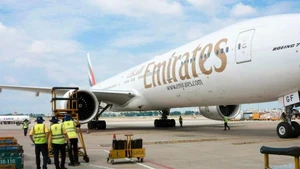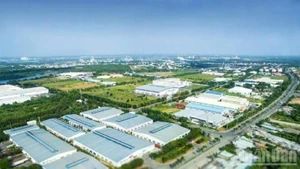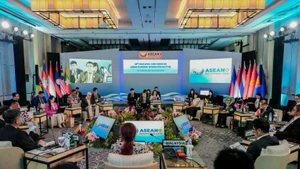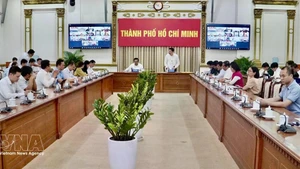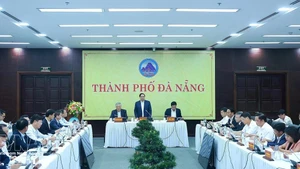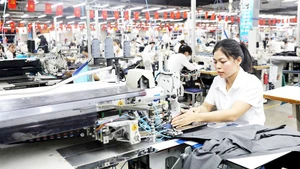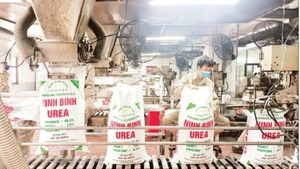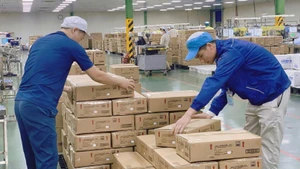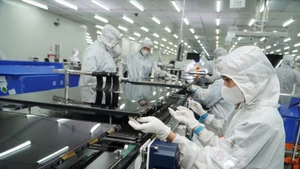Islamic law stipulates that all food sources are permissible except for products derived from prohibited animals or animal-based products (Haram). Some key Halal-certified products include milk (from cows, sheep, camels, and goats), honey, fish, fresh vegetables, dried fruits, nuts such as peanuts, cashews, and hazelnuts, as well as grains like wheat, rice, and barley.
Currently, there are over two billion Muslims worldwide. Many Islamic countries actively participate in the global Halal market, which has strict and specific requirements. Muslims only consume food certified according to Halal standards.
In recent years, the number of Vietnamese businesses meeting Halal export standards has been increasing, reflecting a greater interest and investment in this market. Notably, compared to other export markets such as the US or Europe, logistics costs for the Islamic market are significantly lower, contributing to the competitiveness of Vietnamese products.
Experts suggest that to systematically tap into the Islamic market, Vietnam needs policies and mechanisms to support the development of an ecosystem and a business community producing Halal products. This will prevent fragmented or ineffective implementation. The Halal standard applies not only to production but also to distribution, services, and consumption.
Vietnam is currently one of the world’s leading exporters, particularly in agricultural and processed food products, which have high demand in the Islamic market. However, Vietnam has yet to be included in the list of the world’s top 30 Halal food suppliers.
Experts attribute this mainly to Vietnam’s approach, whereby businesses enter the Halal market individually without a comprehensive national strategy to boost Halal exports.
Ha Minh Hiep, Acting Chairman of the National Quality Measurement Standards Committee (under the Ministry of Science and Technology), noted that Vietnam’s previous approach to the Halal market was traditional and did not yield the desired results.
Since 2021, Vietnam has adopted a new approach, focusing on identifying challenges, finding solutions, and collaborating with Halal industry experts to enhance knowledge and capabilities.
Additionally, the establishment of the National Halal Certification Centre (HALCERT) under the National Quality Measurement Standards Committee has significantly promoted Halal-related activities in Vietnam.
Despite being a large and promising market with geographical advantages, Vietnamese goods, particularly agricultural and aquatic products, are still in the early stages of penetrating the Halal market. However, one major challenge for the Halal industry is the absence of a single globally recognised Halal standard.
According to the Ho Chi Minh City Food and Foodstuff Association (FFA), leading Vietnamese businesses such as Vinamilk, Bibica, and Cholimex have obtained Halal certification and have been exporting to Islamic markets for years. Vinamilk in particular has successfully entered the Middle Eastern market with high-quality Halal-certified products that fully meet market requirements.
Ramlan Bin Osman, Director of HALCERT, stated that in Vietnam, Halal certification currently applies mainly to processed food and beverages, organic and non-organic food, and transportation services. However, other sectors such as cosmetics, personal care products, fashion, and Muslim-friendly tourism services are also experiencing strong growth.
When assessing Vietnam’s Halal market potential, several key factors must be considered. Vietnam’s GDP growth rate averages 6-7% annually, indicating a strong domestic economy with high potential.
Vietnam possesses abundant raw materials for the Halal industry, including coffee, rice, seafood, aquaculture products, spices, nuts, fruits, and vegetables, making it highly capable of producing Halal-compliant finished products.
Vietnam has been recognised as a top international tourist destination, offering great potential for Halal hospitality services, including Halal restaurants and catering.
Ramlan Bin Osman emphasised that obtaining Halal certification requires food safety certifications such as HACCP, GWP, ISO, or FDA. Vietnam has significant opportunities to participate in the global Halal food market, but currently, it meets less than 10% of market demand.
He suggested that businesses should establish a Halal Product Management Board comprising Muslim staff responsible for effectively implementing an internal Halal control system. The board must ensure that its members are trained in Halal principles and their applications. Additionally, businesses must allocate adequate resources — facilities, finances, and infrastructure — to implement Halal control systems effectively.
The core functions of an internal Halal management board include developing Halal policies, conducting internal Halal assessments, and ensuring the best Halal practices in sourcing raw materials, production processes, transportation, storage, and manufacturing practices.



